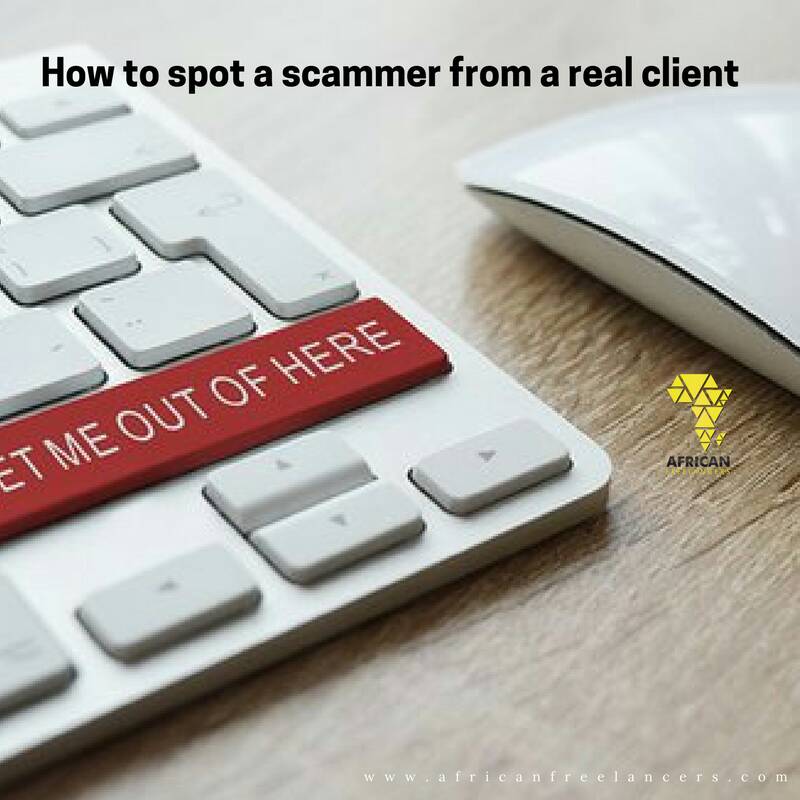When standing face-to-face with someone who is lying to you, it often is relatively easy to detect the lie. Even if the person is a really good liar! However, some have perfected the art of telling lies so much that even in person, while you might feel unsettled or have a nudging which doesn’t go along with what is being said, you are likely to still go along with the inclinations of such an individual.
Now, imagine someone lying to you via an email, or generally, on the internet. How much harder would it be to unravel the lack of a pure intention? You’d be right if you said it would be much more difficult. Freelancing has its advantages, but one of its significant disadvantages is the usual lack of facial contact between client and freelancer- as most of our meetings tend to be virtual or via various messaging platforms. I wouldn’t be surprised if you told me that you’ve never met your biggest or most consistent client till date, and I wouldn’t be surprised if you also said you’ve never met your most troublesome client (or even a client who scammed you) till date!
This doesn’t mean a freelancer has to be hung out to dry, or that there are no protective measures to prevent being scammed on the internet, or in general, in your freelance career.
5 Portent Signs of a Scam
1.A Client who is never Satisfied
The persistently unsatisfied client can be a headache to work with. He asks you to work on a particular project, you put in your best efforts and do it the best way you know how to. He sends the work back for a revision- you revise it. He is still unsatisfied, and asks you to work on it time and time again.
There are two angles from which this can be looked at. First, being that this client is a perfectionist, and you just aren’t meeting up to his standards, in this case, it probably is a good avenue for you to up your game, and improve your own skills. Odds are, you probably are already quite good at what you do, and this leads us to looking at it from the other angle- that the major intent of this client, from the onset of your communication with him, was to scam you.
Conclusion: Be careful when working with a client who is never satisfied
2.Demanding for Free Samples
This brings us back to your portfolio, which already contains work done by you. If a client asks you to deliver original content as a free sample, this should raise a red flag. Why would that be required, if your portfolio has already been seen by them? Do not fall into the category, or join ranks with freelancers who were asked for original samples and ended up not being contacted by that client- only to find out, days, or months after that their samples are all over the internet
Conclusion: Samples in your portfolio should be good enough for a genuine client
3.Personal Information
A scammer might use the tactic of friendship to get into your good books, before proceeding to work on your mental prowess- and by that, I mean your craft. Any client who appears too friendly should be flagged as a potential scammer, and while some are genuinely friendly, if questions start getting too personal and way beyond the scope of the business being carried out, you ought to get suspicious. After all, a business contract doesn’t necessarily have to contain personal details such as what town you grew up in, right?
Conclusion: Business should be kept short and sweet, not drawn out with a lot of irrelevancies about your personal life!
4.Undefined Scope of Work
A time-proven tactic of the excellent scammer is to either under-rate the work being given to you, with the hope of paying you less than your work is worth, or to ensure that the project being handed you is vague and lacks boundaries. That way, after setting a price, more additions are made to the job and this client tries to do so with the intent of tying your hands firmly behind your back and making you unable to come out of that ‘agreement’ because your intellectual property is already involved, as well as your time and other resources pooled to ensure the achievement of the task at hand.
Conclusion: If the task is undefined, or at best, vaguely defined, you should be very alert. It might be a scam!
5.Spec Work
When you agree to spec work, what you are actually saying is that you have agreed to work for a client- maybe a part of, or all of the work, before the client agrees to pay you. It means you are working without any sort of down payment. Since this isn’t a company or an organization where you can locate at any given time and you haven’t made any face-to-face communication with this client, spec work is simply not advised. It is much easier for a client who has gotten your work to refuse to pay you and instead, simply disappear off the radar
Conclusion: To avoid sob stories, avoid spec work







1 comment
Comments are closed.